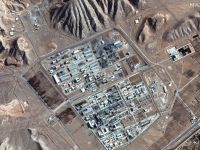By Munir K. Nasser
Washington, DC
A Washington Middle East analyst said the Clinton Administration was unrealistic about the possibility of an agreement on Jerusalem in the Camp David summit.
Shibley Telhami, a senior fellow at the Brookings Institution and Anwar Sadat Chair for Peace at the University of Maryland, told Albawaba.com in an interview that the Americans and the Israelis misunderstood the Palestinian position. He believes it was never possible that Arafat will accept Israeli sovereignty over east Jerusalem.
Telhami said the Clinton Administration’s strategy at Camp David “may have been really a function of brinkmanship getting out of control.” He added that there was a chance to reach a very important agreement on Jerusalem and on everything else, which “is a lot better than failure.”
The following are excerpts from the interview:
Q- Did the failure of the Camp David summit come as a surprise to you?
A- It came as a surprise to me. It may have come as a surprise to the participants themselves. And it may have been really a function of brinkmanship getting out of control. It didn’t come as a surprise to me that they would have disagreement on Jerusalem. I have been arguing from day one that the expectations that they would have an agreement on Jerusalem were unrealistic.
Q- But didn’t the Americans and the Israelis expect this position from Arafat?
A- I think the Israelis, and to some extent the Americans, misunderstood the Palestinian position. It was never possible, in my judgment that Arafat will accept Israeli sovereignty over east Jerusalem. I think anybody who follows this issue very closely knows that. I think the fact that this issue ultimately derailed the summit, and the fact that the negotiators did not have a contingency plan to salvage it, came as a surprise to me.
Q- How far the Palestinians moved in their position on the core issues?
A- The Palestinians have moved on a number of issues. They clearly moved on the settlement question. They moved a lot on the refugees question. Those are huge issues, and I think somehow, whenever they moved, those moves were taken for granted. There are a lot of benefits that came out of the summit. The real question is whether those benefits can be exploited.
Q- Why didn’t the Americans push for a partial agreement?
A- By Tuesday [of this week] they should have known very well that the Palestinians were not going to give in on the question of Jerusalem in this round of negotiations. The real question is why didn’t they have a contingency plan? Like postponing it or some other idea. I would have thought that if they did not have an agreement on everything, they would at least have salvaged some major agreement on issues, or may be some other framework agreement. The fact that they didn’t come as a surprise to me.
Q- Was it a wise move to skip a partial agreement?
A- I guess history will tell, because all of us guess about these things. Personally I don’t think so. There was a chance to reach a very important agreement on Jerusalem and agreement on everything else and making it as comprehensive as possible. I think that is a lot better than failure. The problem isn’t going to be Arafat and Barak; both of them still want to deal, both of them are going to try. The real problem is whether they can have control. I think they are going to lose control. They are going to be taunted by their opposition, and will be hard to know how they will react.
Q- Clinton said progress was made on all fronts. Do you agree with that?
A- He did, but with the positive statement spin he put on it, he also seemed to implicitly blame Arafat. And that is an issue, obviously.
Q- What is the possibility of the negotiations resuming in the near future?
A- The possibility is there. Everybody is interested in reaching an agreement than not. The real question is whether they have the capacity to do it. I think they are going to try. I don’t think its in Barak’s or Arafat’s interest to give up. Now they can go and consult and talk to constituents. Arafat will go to talk not only to Palestinians, but he might not go home directly. He may go to Egypt first.
Q- Do you think Arafat will go ahead with declaring a Palestinian state before the September 13th line?
A- If there is no imminent progress and the environment is poisoned between now and then, I don’t see how he can refrain from it. Given the fact that the opposition is taunting him. Hamas is already saying ‘what have you done?’
© 2000 Al Bawaba (www.albawaba.com)







